Physical Address
304 North Cardinal St.
Dorchester Center, MA 02124
Physical Address
304 North Cardinal St.
Dorchester Center, MA 02124
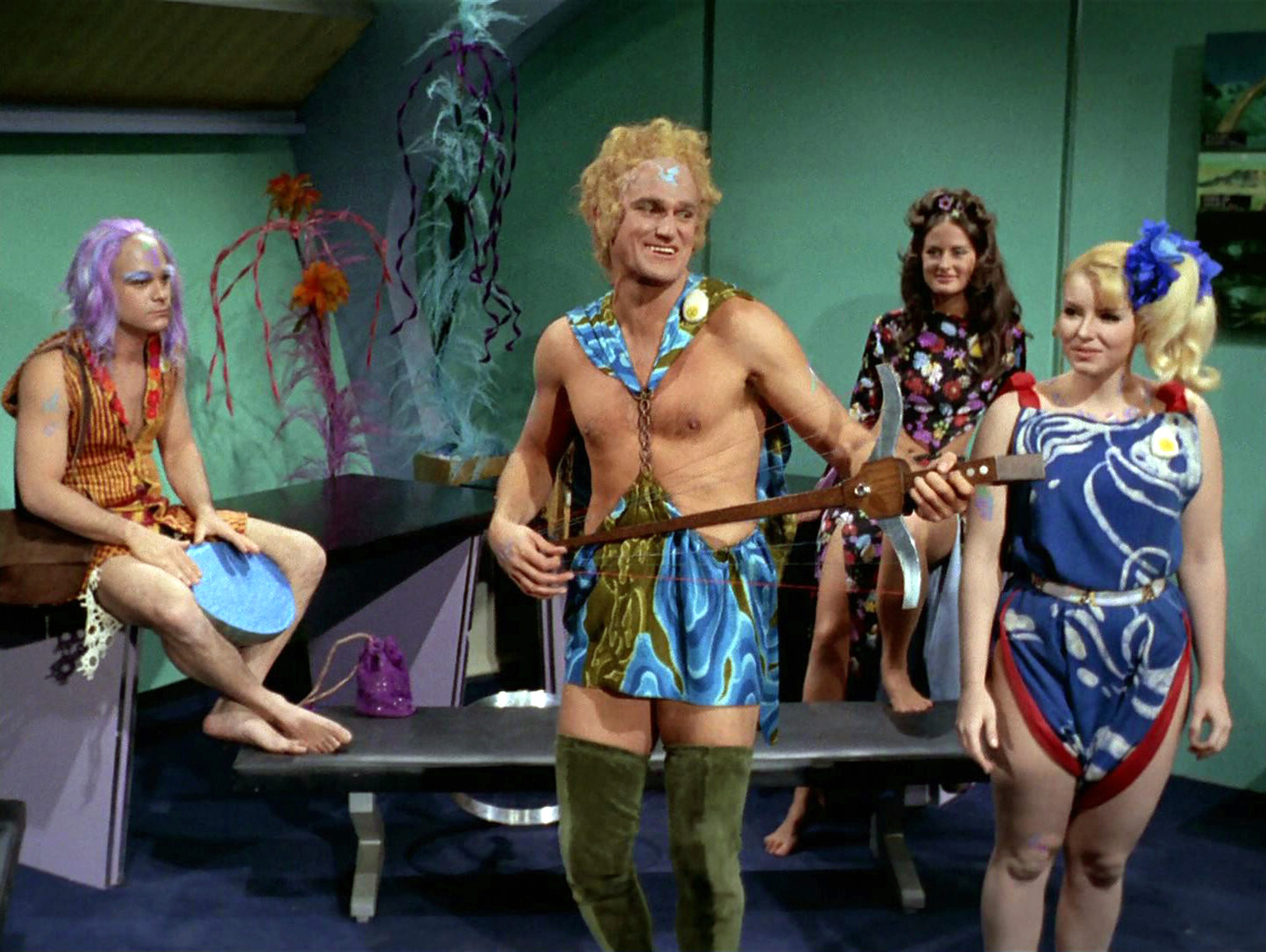
“The Way to Eden” stands out as one of the most memorable episodes from the original Star Trek series, blending countercultural themes with classic science fiction adventure. First broadcast in the show’s third season, this unique episode introduces a group of space-faring hippies searching for a mythical paradise, leading to unexpected challenges for Captain Kirk and the Enterprise crew. Featuring notable performances from guest stars like Charles Napier and Deborah Downey, “The Way to Eden” is renowned for its distinctive music, colorful characters, and unforgettable quotes. Discover the story behind the episode, its cast, songs, and the legacy it shares with other classic Star Trek adventures such as “The City on the Edge of Forever.”
“The Way to Eden” is a memorable episode from Star Trek: The Original Series that introduces a group of space hippies, often called “Edenites,” who hijack a stolen spacecraft in search of a mythical paradise called Eden. Led by the troubled Dr. Sevrin, they reject modern technology and long to live in harmony with nature, embodying the countercultural spirit of the 1960s. The Enterprise crew pursues them, and after a musical concert featuring Spock, the Edenites take control of the ship and set course for Eden, which lies in dangerous Romulan space.
When they arrive, the planet appears lush and beautiful but is actually toxic, with plants secreting acid and poisonous fruits. The Edenites suffer from the harsh environment, and Dr. Sevrin ultimately dies after eating a poisonous fruit. The episode explores themes of idealism, the search for utopia, and the dangers of blindly following charismatic leaders. Despite mixed reviews and some criticism of its portrayal of the hippie characters, the episode offers thoughtful reflections on mercy, leadership, and the human desire for a perfect world. Spock’s final advice encourages the Edenites to continue their search, suggesting that Eden might be found or created rather than discovered.
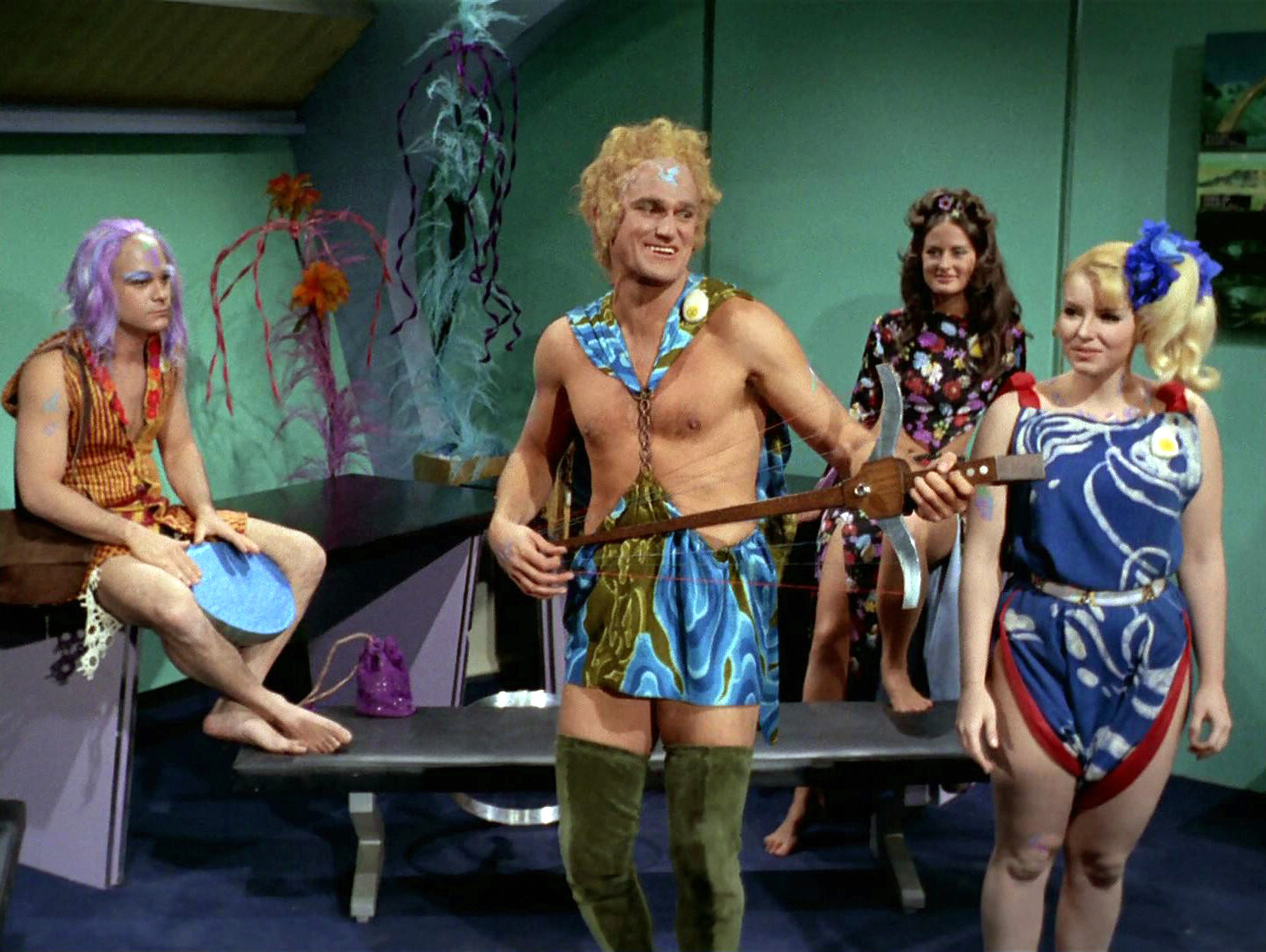
The cast of the Star Trek episode The Way to Eden features the classic Enterprise crew led by William Shatner as Captain James T. Kirk, Leonard Nimoy as Mr. Spock, and DeForest Kelley as Dr. Leonard McCoy. Alongside them are James Doohan as Scotty, Walter Koenig as Chekov, George Takei as Sulu, and Majel Barrett as Nurse Chapel, all familiar faces from the original series.
The episode introduces a group of six “Edenites,” space hippies seeking a mythical planet called Eden. This group includes Skip Homeier as Dr. Sevrin, a brilliant but troubled scientist; Charles Napier as Adam, a musician; Mary Linda Rapelye as Irina, who has a connection to Chekov; Victor Brandt as Tongo Rad, the son of an ambassador; and two unnamed women. Their presence creates tension and philosophical debate aboard the Enterprise, especially between Kirk and Spock, who understands their ideals better.
The dynamic between the Enterprise crew and the Edenites adds a unique flavor to the episode, blending the familiar Star Trek characters with this countercultural group, making The Way to Eden a memorable installment in the series.
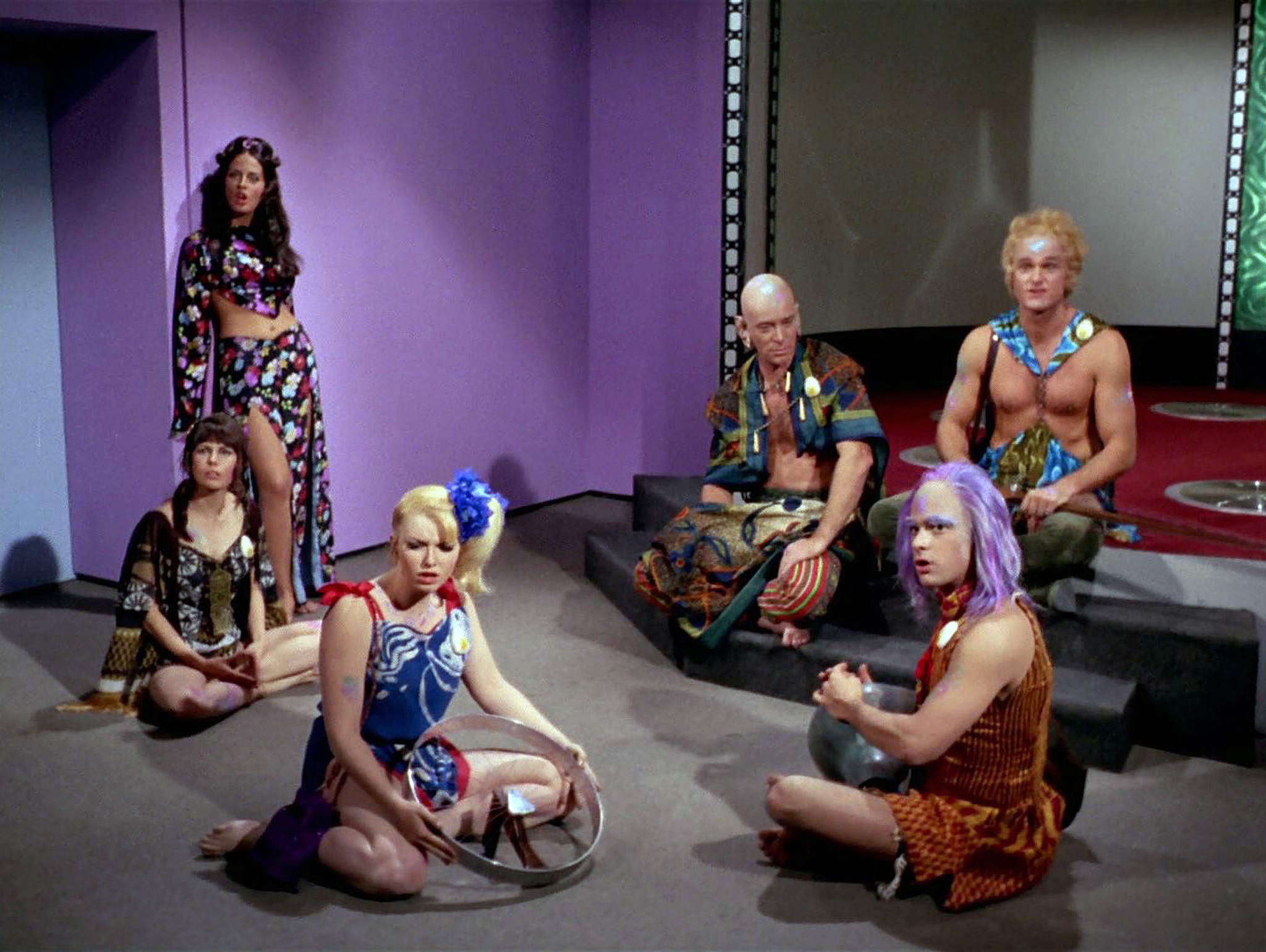
“The Way to Eden” is a memorable episode from the third season of Star Trek: The Original Series, first aired in 1969. It features a group of hippie-like rebels led by Dr. Sevrin, who hijack the Enterprise to find a mythical paradise planet called Eden. The group embodies the countercultural spirit of the 1960s, seeking a utopian escape from the artificiality of space civilization. Despite their idealism, the episode explores darker themes, as Sevrin is revealed to be suffering from a deadly disease and his leadership is marked by a kind of madness that endangers his followers.
The episode mixes moments of lightheartedness, like alternative music performances, with serious reflections on trust, leadership, and the search for meaning. Captain Kirk shows a mix of curiosity and sympathy toward the group, while Spock remains skeptical but understanding. Although “The Way to Eden” is often considered one of the less successful episodes by fans due to its somewhat caricatured portrayal of the hippie movement, it still offers valuable lessons about mercy and the complexity of idealism in a harsh universe. Overall, it’s a unique and culturally reflective story within the Star Trek canon.
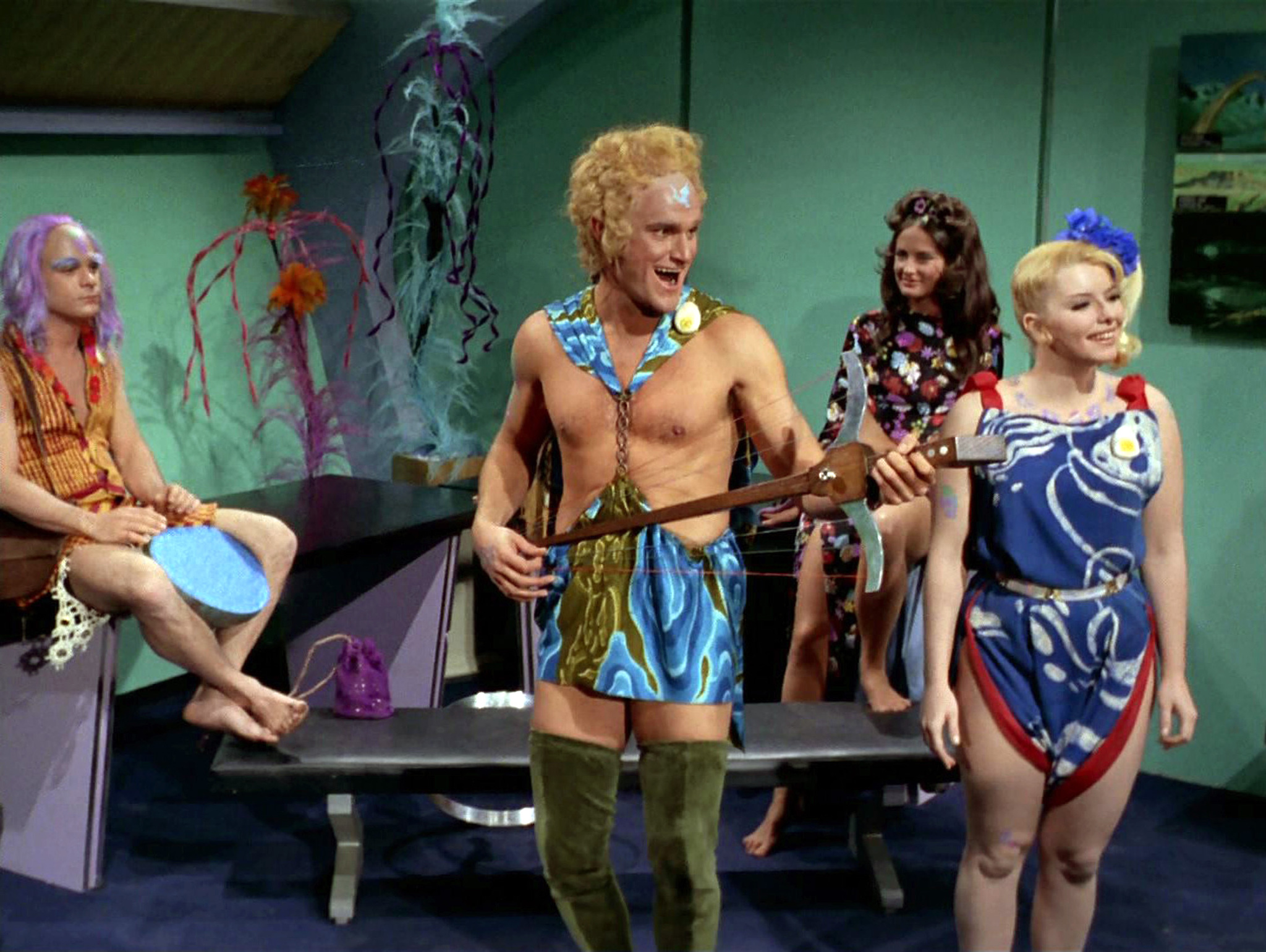
“Star Trek: The Way to Eden” is a memorable episode from the original series that aired on February 21, 1969. It features the U.S.S. Enterprise encountering a group of idealistic, hippie-like space travelers led by the troubled Dr. Sevrin, who are on a quest to find a mythical paradise called Eden. The episode mixes classic Star Trek themes with the counterculture of the 1960s, showcasing the clash between the crew’s order and the hippies’ anti-authoritarian, nature-loving ideals.
The story unfolds as the group hijacks the Enterprise to reach Eden, a lush but dangerous planet where the plants are poisonous. Despite their peaceful intentions, Sevrin’s madness and the group’s recklessness lead to tragic consequences. The episode is often seen as one of the more controversial or less favored installments due to its portrayal of the hippie movement and some cartoonish characters, but it still offers insightful lessons about leadership, idealism, and mercy.
With a modest IMDb rating of 5.4/10, “The Way to Eden” remains a unique and thought-provoking chapter in Star Trek’s exploration of humanity and society.
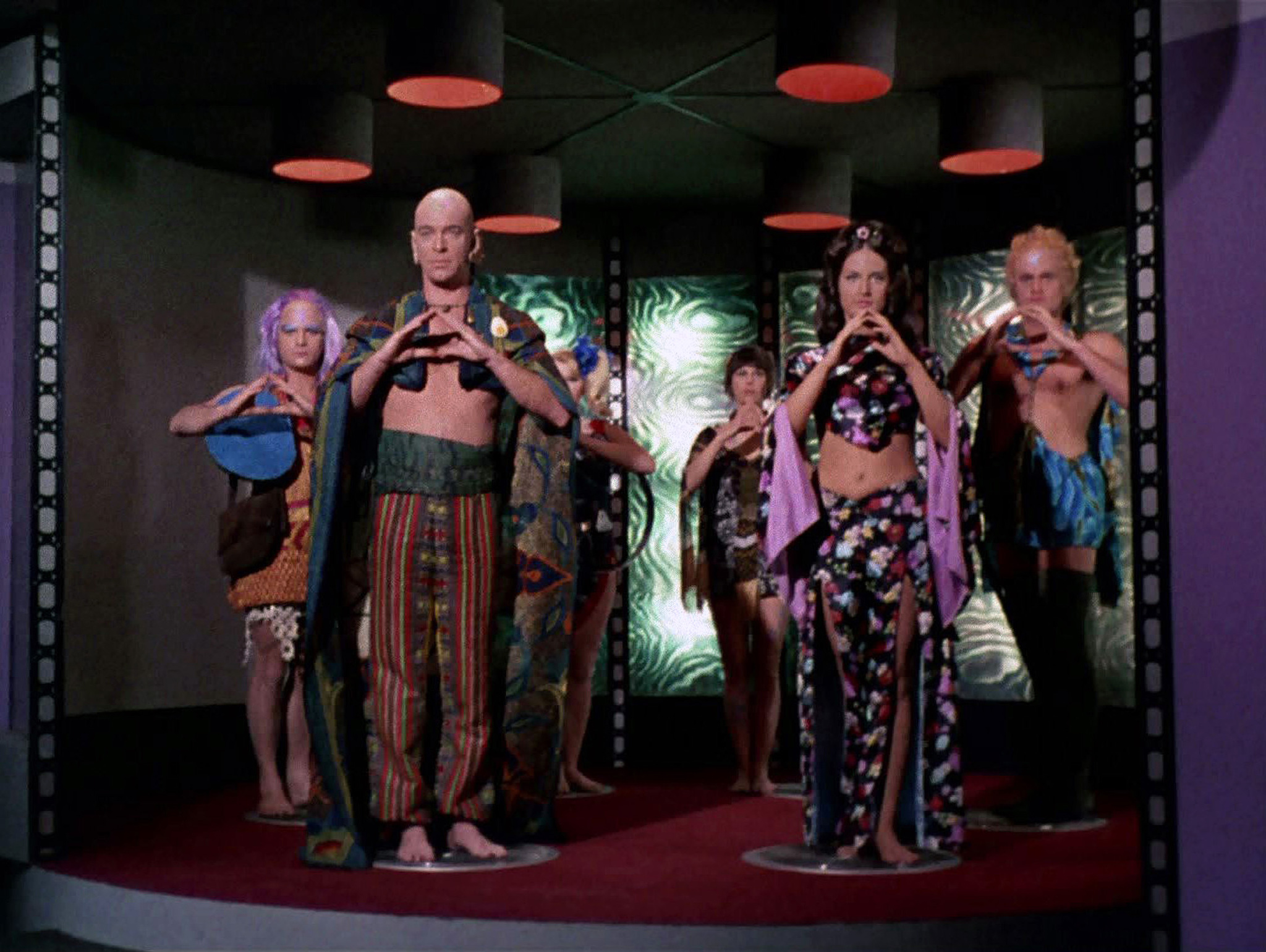
“Star Trek: The Way to Eden” is a memorable episode from the original series that taps into the 1960s counterculture, featuring a group of spacefaring “hippies” seeking a mythical paradise called Eden. The episode explores themes of idealism, rebellion, and the harsh realities that often confront utopian dreams. One of the standout quotes comes from Spock, who says, “It is my sincere wish that you do not give up your search for Eden. I have no doubt but that you will find it, or make it yourselves,” reflecting a compassionate and open-minded view toward the Edenites’ quest despite their flaws. Captain Kirk’s line, “I used to get into a little trouble when I was that age, Scotty, didn’t you?” shows his understanding of youthful rebellion, even as he remains cautious about their actions.
The episode is often remembered for its mix of earnestness and camp, with some viewers finding the hippie characters and their idealism both charming and a bit over-the-top. The story ultimately serves as a cautionary tale about blindly following leaders and the elusive nature of paradise, as the Eden planet turns out to be far from perfect. Despite mixed reviews, the episode offers thoughtful reflections on mercy, idealism, and the search for meaning in a changing universe.
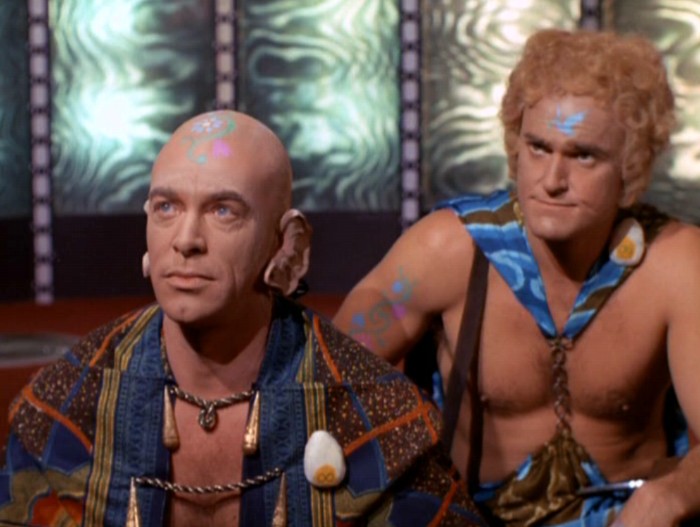
In the Star Trek episode “The Way to Eden,” the USS Enterprise encounters a group of rebellious, hippie-like travelers led by Dr. Sevrin, who are obsessed with finding a mythical paradise called Eden. These “Edenites” hijack the Enterprise, hoping to escape the constraints of Federation technology and live in harmony with nature. Despite their peaceful ideals, their leader’s desperation and madness put everyone at risk, especially when they take the ship to the lush but dangerous planet Eden, where the plants secrete a deadly acid.
Among the group is Adam, a sincere follower who truly believes in the dream of Eden and expresses his hope through music, even as the situation deteriorates. The episode explores themes of idealism, the search for utopia, and the dangers of blindly following charismatic leaders. Though often criticized for its portrayal of the “space hippies” and its somewhat dated tone, the story offers a thoughtful message about mercy, understanding, and the human desire to find or create a better world. Spock’s final advice encourages the Edenites to keep searching for their paradise, whether in reality or by making one themselves.
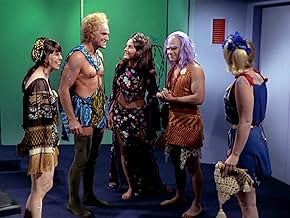
Charles Napier was a versatile American actor born in 1936 in a small Kentucky community. Before diving into acting, he served in the Army and worked as a sports coach and art teacher. He became well-known for playing tough, often villainous authority figures like police officers and soldiers. His acting career took off with the 1969 film Cherry, Harry & Raquel!, and he frequently collaborated with director Jonathan Demme in movies such as The Silence of the Lambs and Philadelphia.
Napier’s memorable roles include the gruff army commander in Austin Powers and the CIA officer in Rambo: First Blood Part II. Beyond live-action, he lent his distinctive voice to animated characters like Duke Phillips in The Critic and Zed in Men in Black: The Series. Over a steady 35-year career, he became a familiar face in both film and television, known for his commanding presence and often gritty characters. Napier passed away in 2011, leaving behind a legacy of strong supporting roles that enriched many popular films.
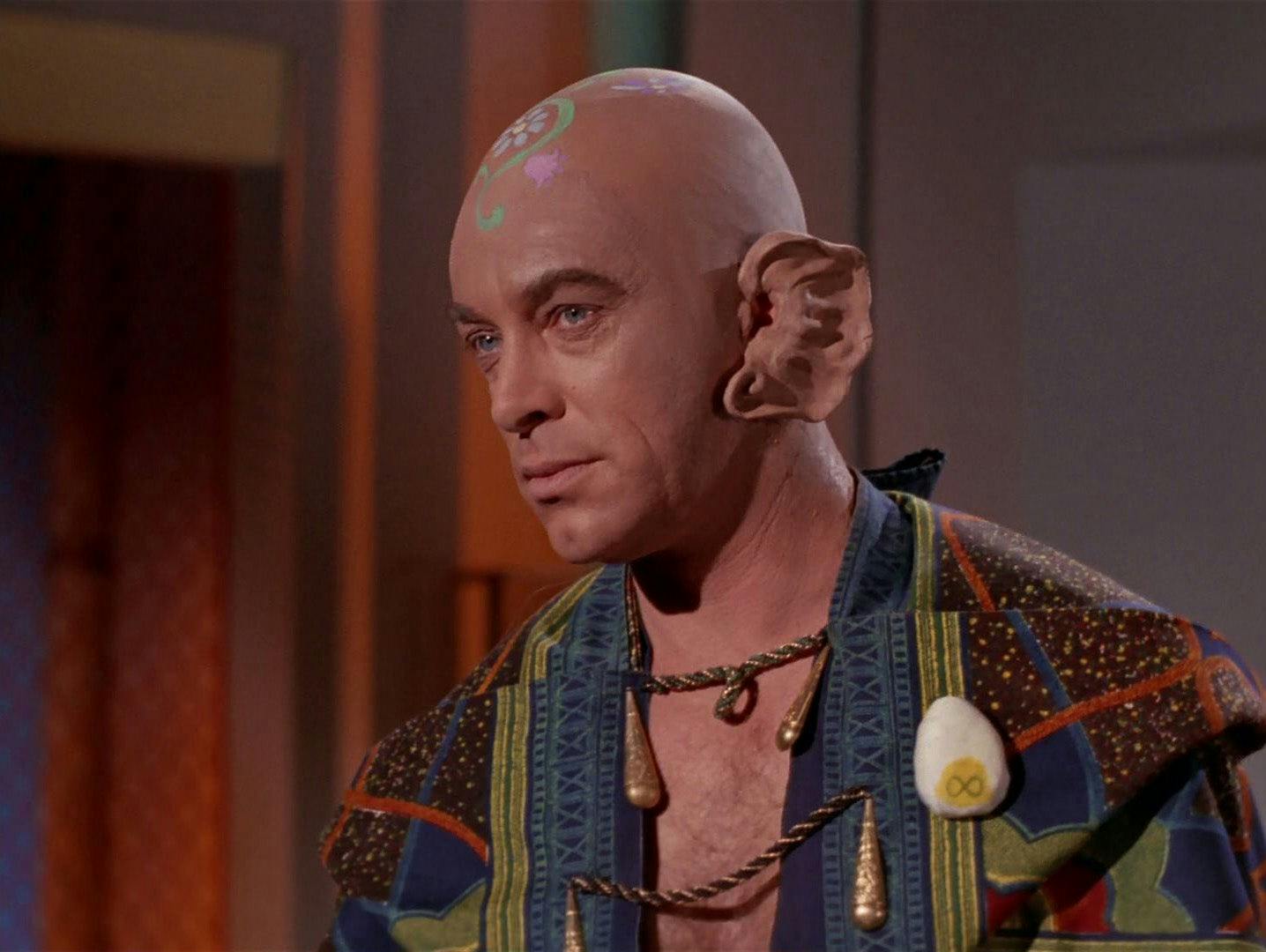
“The Way to Eden” is a memorable episode from the third season of the original Star Trek series, first aired in 1969. It tells the story of a group of space-faring hippies led by Dr. Sevrin, who hijack the Enterprise in search of a mythical planet called Eden—a paradise free from the constraints of modern society. The group, including musicians and idealists, represents the counterculture movement of the 1960s, longing for a return to nature and harmony away from technology and control.
Dr. Sevrin, the group’s troubled leader, believes Eden will cure his mysterious illness, but his obsession and manipulative nature lead to tragic consequences. The episode explores themes of idealism, rebellion, and the clash between generations, with Spock showing a rare empathy for the group’s alienation despite their misguided quest. Ultimately, the paradise they seek turns out to be hostile, symbolizing the harsh reality behind utopian dreams. While the episode received mixed reviews, it stands out for its thoughtful portrayal of social tensions and the longing for a better world, wrapped in the classic sci-fi adventure of Star Trek.
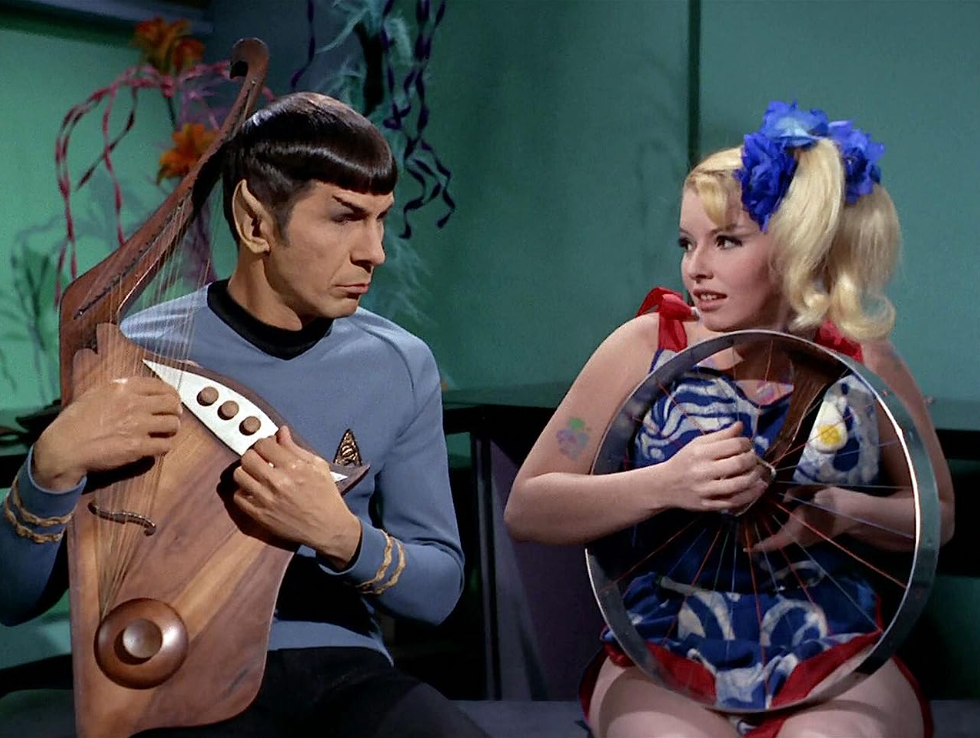
The songs from the Star Trek episode “The Way to Eden” capture a unique moment when the series embraced the 1960s counterculture vibe. The episode features a group of space hippies who take over the Enterprise, singing several flower-power style tunes. One of the standout songs is performed by the character Tongo, played by Charles Napier, who also wrote some of the music. His folksy, upbeat song encourages friendship and fun, with lyrics like “Let’s get together and have some fun / I don’t know how to do it but it’s got to be done!” The music blends acoustic guitar with a church organ sound, creating a distinctive, somewhat quirky atmosphere that fits the episode’s themes of peace and rebellion.
Though the episode itself received mixed reviews, many fans appreciate the songs for their authentic hippie spirit and catchy melodies. Tracks like “Headin’ Out to Eden” and “Hey, Out There!” reflect the era’s folk-rock style and add a memorable musical layer to the story. Even Spock joins in with a jam session, adding a fun twist to the soundtrack. These songs stand out as a charming, if somewhat dated, musical experiment within the Star Trek universe.
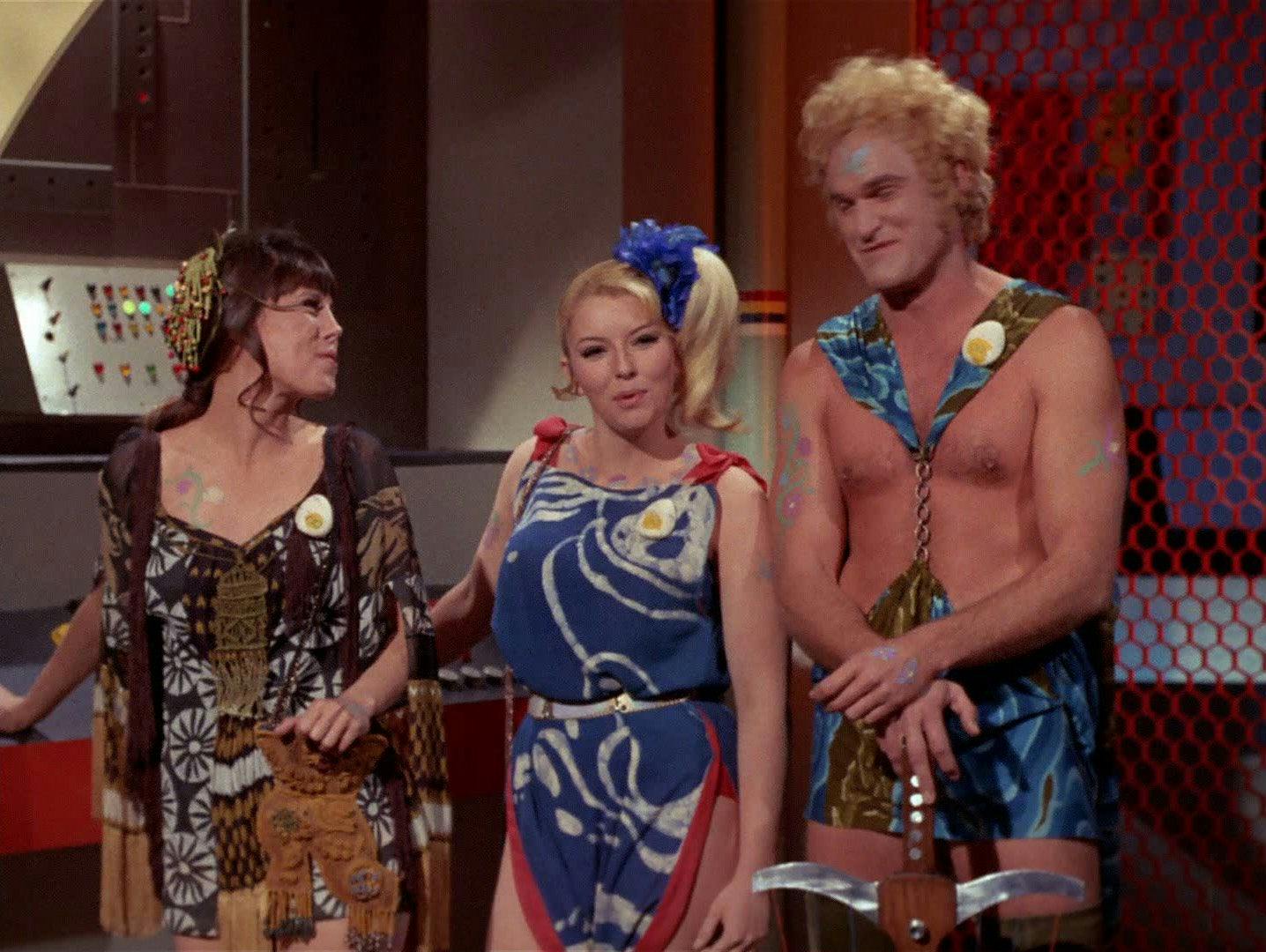
“The City on the Edge of Forever” is a standout episode from the original Star Trek series, first aired in 1967. It tells a gripping story where Dr. Leonard McCoy accidentally overdoses on a powerful drug and, in his confused state, jumps through a mysterious time portal called the Guardian of Forever. This portal sends him back to 1930s New York during the Great Depression. Captain Kirk and Spock follow him to fix the timeline, discovering that McCoy’s interference threatens the very existence of the Federation. The episode is especially memorable for Kirk’s heartbreaking choice to let a kind woman, Edith Keeler, die to preserve history, even though he falls in love with her. This mix of sci-fi adventure and deep emotional conflict has earned the episode critical acclaim and several awards, including the Hugo Award for Best Dramatic Presentation. It’s often praised as one of the best Star Trek episodes ever made because of its powerful storytelling and tragic ending, showcasing the series’ ability to blend thrilling science fiction with human drama.
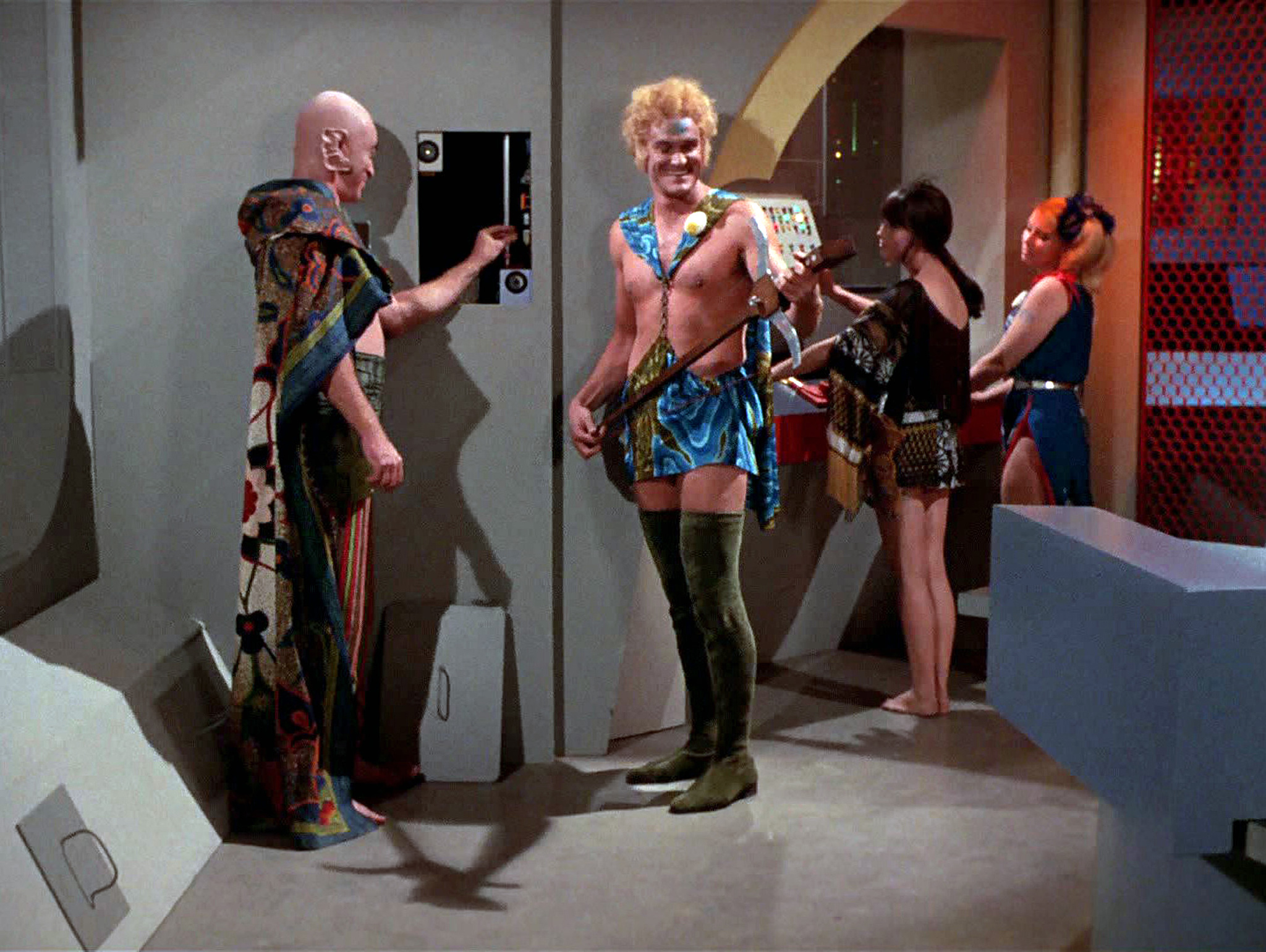
In conclusion, “The Way to Eden” serves as a thought-provoking exploration of cultural identity, rebellion, and the quest for utopia in the Star Trek universe. Through the journey of the space hippies, the episode highlights the tension between established norms and the desire for freedom and authenticity. The contrasting ideologies of the crew and the newcomers reflect deeper societal issues, challenging viewers to contemplate the balance between conformity and individuality. Ultimately, the episode prompts us to consider our own paths in search of paradise, urging us to critically assess what it means to truly pursue a better world.